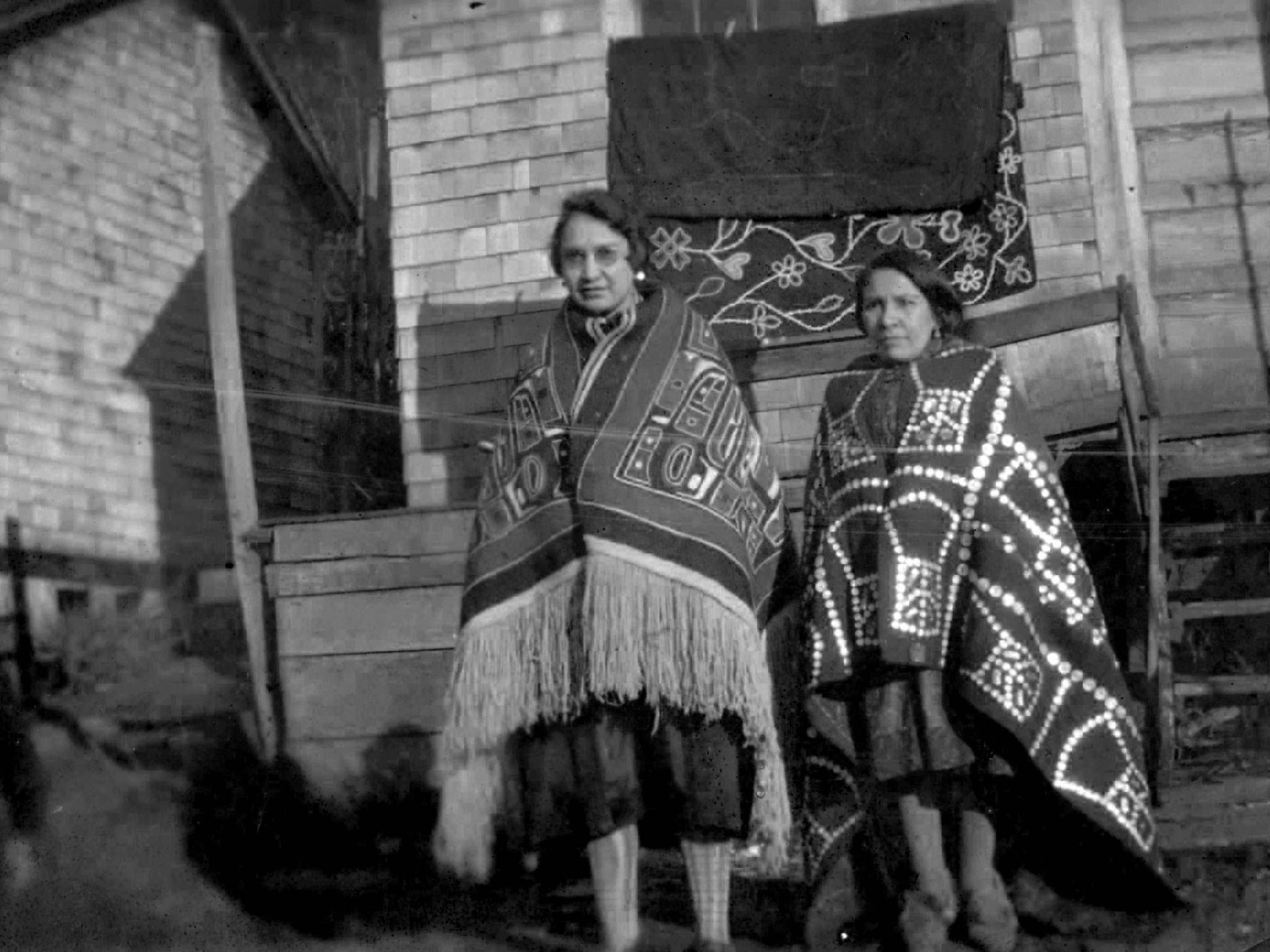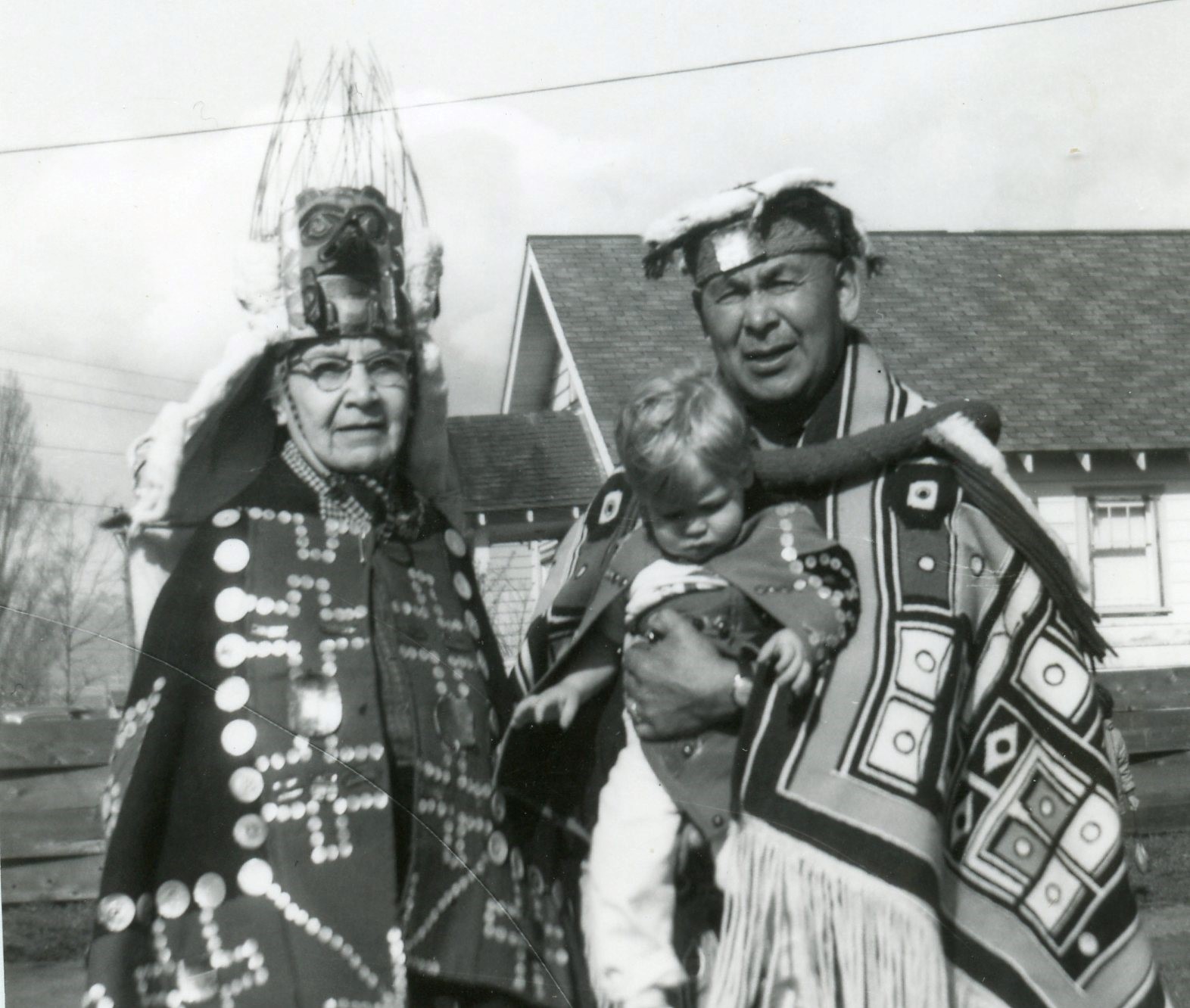Return to Main Screen
How can a button blanket
be seen as a self-portrait?
Since the late nineteenth century, many Northwest Coast peoples from Vancouver Island to the Alaskan Panhandle replaced skins used for ceremonial robes with wool fabric acquired through trade with Europeans. Decorated with pearl buttons and abalone shell, which reflect light during a dance, these robes came to be known as button blankets.
The combination of a three-sided border and large central area refers to the structure of the ancestral longhouse, the place where blankets were often worn during the potlatch, a complex celebration with many purposes. Often women appliquéd designs that symbolized familial crests, which are the property of that lineage and cannot be copied. However, the shapes in this blanket are coppers—shield-shaped sheets of beaten copper—that indicate wealth and power.
Not a self-portrait in the customary sense of a maker’s likeness, a button blanket expresses her heritage. Through exceptional design and needlework skills, she asserts her identity in the present and creates a document of family history that a member is proud to wear.

The Artist Herself: Self-Portraits by Canadian Historical Women Artists is curated by Alicia Boutilier and Tobi Bruce, and organised and circulated by the Agnes Etherington Art Centre and the Art Gallery of Hamilton, with the generous support of the Government of Canada, the Canada Council for the Arts, the Ontario Arts Council, the City of Hamilton, the City of Kingston Arts Fund through the Kingston Arts Council, and the Janet Braide Memorial Fund, Celebrate Agnes Fund and Iva Speers Fund for Art Education, Queen’s University.
The exhibition is on view at the following Canadian venues:
Agnes Etherington Art Centre, Queen’s University,
Kingston, ON (2 May–9 August 2015)
Art Gallery of Greater Victoria, BC
(2 October 2015–3 January 2016)
Kelowna Art Gallery, BC (23 January–3 April 2016)
Art Gallery of Hamilton, ON (28 May–11 September 2016)


The interpretive material was compiled by Alicia Boutilier and Pat Sullivan, Agnes Etherington Art Centre
Photo credit for blanket images:
Wilson: Museum of Vancouver (AA 1790)
Wilson or Frank: Museum of Anthropology, University of British Columbia, Vancouver (Nb3.1310)
Credit for Wilson and Frank photos: Courtesy of Andy Everson
“Potlatch Song” by Billy Assu from the recording entitled Indian Music of the Pacific Northwest Coast, FW04523, courtesy of Smithsonian Folkways Recordings ©
Used by permission
Native American Artist Series: Maxine Matilpi produced by Quintana Galleries, Portland, Oregon www.quintanagalleries.com
Used by permission





